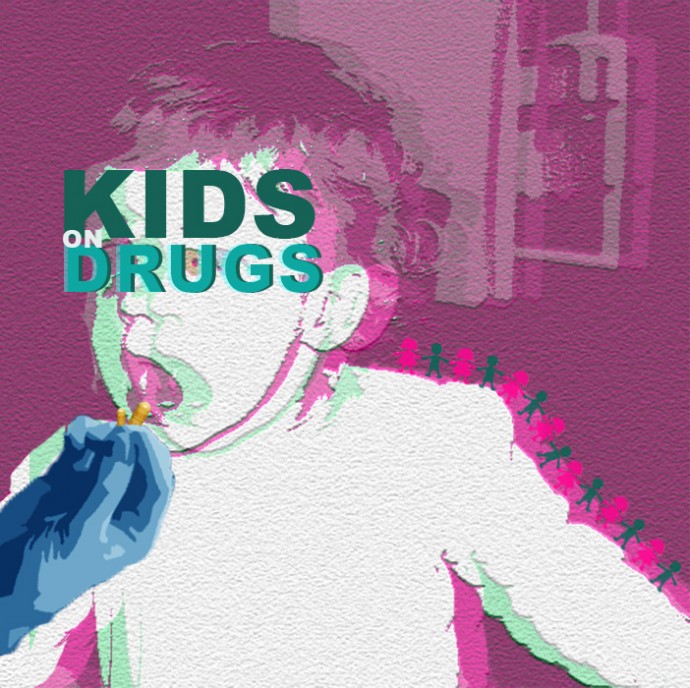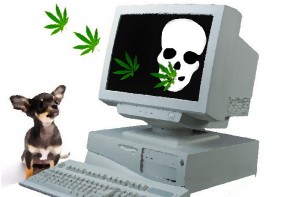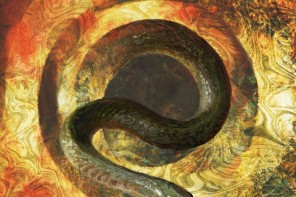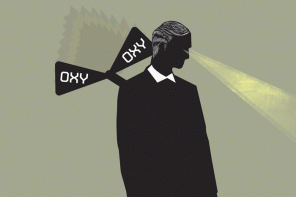Most parents wants their kids to be regularly functioning human beings who are well behaved, motivated and, at least in some regards have a sense of self control. Granted, there are plenty of parents who do not fit this description, but when the children are not fitting, each parent tends to react in his or her own distinct way to try to help the child get there. When the parent’s efforts prove to be in vain, seeking professional help suggests itself as a good idea. What an increasing (about 3% annually) amount of parents will hear is, ”Your child suffers from Attention deficit hyperactivity disorder (ADHD).” More than 5.2 million children between the ages of 3 and 17 have been diagnosed with ADHD. For those parents who lay their trust in Western medicine, their children’s ”disorder” will be treated with a prescription of Methylphenidate, or Ritalin. This little pill is structurally similar to cocaine and comes with side effects such as irritability, confusion, urges to harm oneself, severe anxiety, paranoid delusions, hearing voices, increased aggression…enough already. Would you give this to your child? Doesn’t giving your child the attention, love, diet and environment (s)he needs to flourish sound a bit healthier? Rachel tells us her story of growing up on Ritalin and how the drug fed future difficulties in her life.
I was diagnosed with ADHD along with Oppositional defiant disorder, and I was put on Ritalin at age seven. Oppositional defiant disorder is when you show patterns of insubordinate, argumentative, and defiant behavior towards authority, which one would hope every kid had in the right amount…I didn’t understand why I was on medication. I knew, from what I was told, that I was doing something wrong. I was ”too hyper.” I just had a lot of energy. I had this sense that to be a ”good girl”, this is what I have to do now, I have to take this medicine every day. Growing up I thought I was special. It was an identity thing, like ”I’m the kid with ADHD.” It gave me a label to identify with and I think that influenced me a lot in developing my identity. Even research is unclear of what Ritalin does long term. You’re putting chemicals in the brain while its developing. I’m not sure what effect that had on my perspective or my behavior. I don’t even remember what happened if I didn’t take it. My parents were mainly in charge of making sure I took it every morning, and at lunchtime. If I were to go on trips with my friends, their mothers made sure that I was taking it.
One thing I recall is that the teachers would come in during the cafeteria time and they would have to sit down with me to get me to eat my lunch, because I refused to eat my food. Now, looking back I completely understand why I didn’t want to eat, because it was repugnant American public school lunchroom food, but nonetheless, I got really skinny. I remember being on Ritalin as a kid, there was kind of a tunnel vision when I had taken it. I remember never wanting to take my medicine and that I didn’t like the feeling of the pills going down my throat. My dad didn’t want to put me on the medicine, but my mom’s best friend told her that, you know, this was the only way to go. She was part of CHADD (Children and Adults with Attention-Deficit/Hyperactivity Disorder), which still exists.
I don’t remember when I stopped taking Ritalin for ADHD, but after that I became bipolar. That happened around college time. My dad had called me a bitch, and I was like, ”I’m not a bitch!…there’s something else going on here.” So I blamed it on bipolar disorder. I did research online and that was the only thing I could find. I didn’t have access to information on homeopathy or anything at the time…it’s amazing how so much information has flooded the internet about this treatment now. I diagnosed myself with bipolar disorder. So I went voluntarily to the hospital, where they confirmed it and I got committed. I stayed there for three days then they started giving me medication, a pill called Seroquel, one of the most sedating anti-psychotics around. Then I started seeing a psychiatrist. At first, I thought I needed to be on something, because I grew up thinking I needed to be on something. But this medicine would tranquilize me, I wasn’t able to wake up in the mornings, I was having trouble going to school, it was interfering with my studying. I was working on my finals for my photography class at a friend’s house and I was standing up straight and 45 minutes after taking the pill, I just fell down on the ground… That’s when I decided to get off of it. First I tried it cold turkey, and had insomnia for five days, it was really painful…
It was interfering with my life, and that’s what the whole thing is. When they put you on these drugs, it’s a guessing game. They don’t know what’s going to work and what’s not going to work. I was sick and tired of experimenting. I asked myself, what is human potential and what can humans do naturally. I went on a gluten free 80% raw diet and that changed a lot. I noticed a big difference physically and mentally from when I was eating gluten to when I was not. There are things like acupuncture, and nutrition and just love…I received some abuse as a child…and I think that had a lot to do with discipline. Treating things like Oppositional defiant disorder, which I had, has a lot to do with teaching a child how to behave without violence, and teaching with compassion and love and patience… These kids with ADHD, with all this energy, a lot of them are really smart with high I.Q.’s. They need a lot of attention, they just need a lot of it, and they’re not getting it. So they’re get medicated instead because the parents are too busy. So it’s about how much a parent willing to sacrifice to really be with their child. I mean you make a choice to have a child and then you get busy, go to work, you gotta work all day, you send your kids to public school all day where they’re bored and they’re hyper because they’re bored and they’re learning things that aren’t important. It just feeds the condition.
I just got out of the hospital on January 9th for something else. I was there for a year. It certainly showed me some stuff that I’d never seen before. I don’t know if I needed to be there or not. I mean we make our own decisions and we have to deal with the consequences of those decisions and that was a consequence I had to deal with. It showed me what happens behind the scenes of the medical world that not a lot of people see. I got to experience drugs and the effects of drugs that I never want to experience again. I was having reactions to these pharmaceutical drugs, where I could understand where people could die from this stuff.







